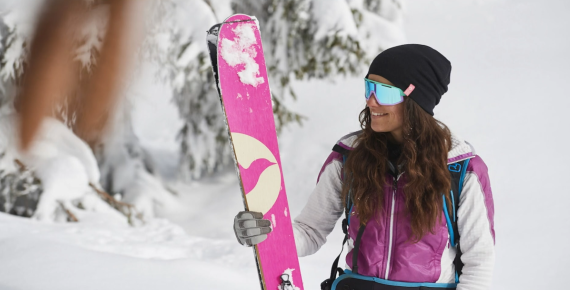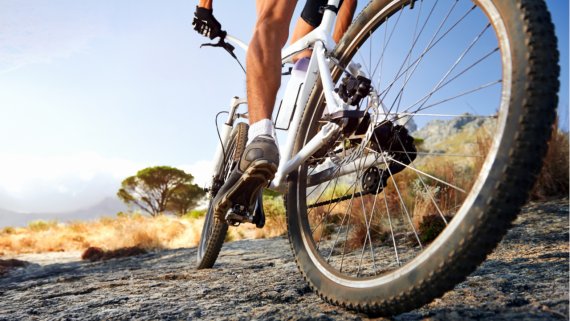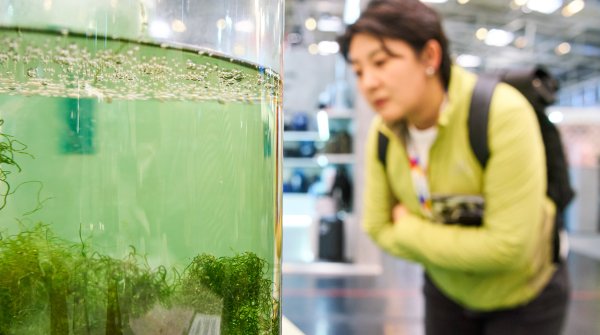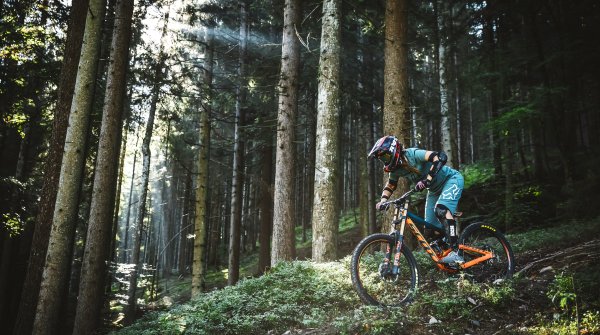
The focus on sustainability has of course become an elementary component for most companies in the sports industry. This was recently demonstrated, for example, by the applications submitted for the ISPO Award and the ISPO Brandnew 2021.
At the same time, however, there are still pioneers in the variety of sustainability-oriented brands that go one step further than simply implementing the norm. In this way, they create new standards. The communication agency Greenroom Voice presented positive examples at ISPO Munich Online 2021. The company representatives from Earlybird and Re:down also explained their work in longer interviews.
Among the companies presented at the ISPO Award 2021 in the Sustainable Achievement category were Helly Hansen's Odin Infinity jacket, a running shoe by On Running (Cyclon), and the Zone Knit Hoodie by Icebreaker. And the ski manufacturer Earlybird.
The small ski company from Switzerland is working on improving the world of winter sports - with the Chickadee touring ski. It is completely recyclable at the end of its life. "We are the first with this. We want to push the whole industry and make a change," says founder Hanno Schwab. Recycling involves putting the skis in a bath and their parts falling apart.

According to Schwab, 350,000 skis end up in the garbage every year in Germany alone. This is to change in the future - and also in the bike market, in the car industry or in wind energy, one could use the make of the skis in the future, says Schwab. In addition, the Chickadee will be manufactured 100 percent climate neutrally, as will all Earlybird products in the future.
Together with the Myclimate foundation, the company has set goals to reduce the CO2 footprint to zero after production through CO2 offsets. For this, Schwab has also calculated: "To produce a pair of skis, you would drive the equivalent of 112 kilometers by car."

At this point, he therefore also points out: "If the consumer buys the skis and then goes to the mountains by car, it doesn't make sense." That's why the company is also working with Protect Our Winters, among others, to develop better transport concepts for winter sports enthusiasts: by bus or train, for example.
By the time the first skis reach the end of their lives - Schwab estimates that will be after about six to years - there will also be more recycling stations. So far, the company has only one in Spain, later there will also be some in the DACH region and the Czech Republic, for example, where the products are used.
In addition to Schwab, Re:down co-founder Eric Firmann was also on hand to answer questions during the Greenroom Voice interviews. He is guided by the question, "How can we change textile waste into a recyclable resource?" In Europe alone, the company estimates textile waste at 7.5 million tons. Firmann is working with Re:down to make down and feathers more usable.
To do this, the brand collects discarded products throughout Europe - from textile containers or hotel chains. The down and feathers are then reprocessed in the factory in Hungary. Because even if the product is fragile, the down inside is always in good condition.

The reprocessing process also uses no more water than raising animals to fresh, washed down. "Raw material from us is much cleaner than material from the slaughterhouse," Firmann says. He estimates the water savings over virgin material at nearly 75 percent. Fifty percent of Re:down's factory energy also already comes from solar power.
The factory waste doesn't end up in landfills, but at companies that manufacture insulation for the auto industry or construction. The rest of the down that can no longer be directly recycled, because it has broken apart, for example, is pressed into fertilizer pellets, Firmann explains. "Down and feathers are not only biodegradable, but also an efficient natural fertilizer like horn."
Last winter, the company also partnered with Swiss biocomposer Fluid Solids to develop a Re:down Christmas tree decoration from the waste that is 100 percent compostable. "After the Christmas season, you can then put the decoration in the garden - or use it again next year," Firmann said with a smile at ISPO Munich Online.
- ISPO awards
- Mountain sports
- Bike
- Design
- Retail
- Fitness
- Health
- ISPO Job Market
- ISPO Munich
- ISPO Shanghai
- Running
- Brands
- Sustainability
- Olympia
- OutDoor
- Promotion
- Sports Business
- ISPO Textrends
- Triathlon
- Water sports
- Winter sports
- eSports
- SportsTech
- OutDoor by ISPO
- Heroes
- Transformation
- Sport Fashion
- Urban Culture
- Challenges of a CEO
- Trade fairs
- Sports
- Find the Balance
- Product reviews
- Newsletter Exclusive Area
- Magazine






